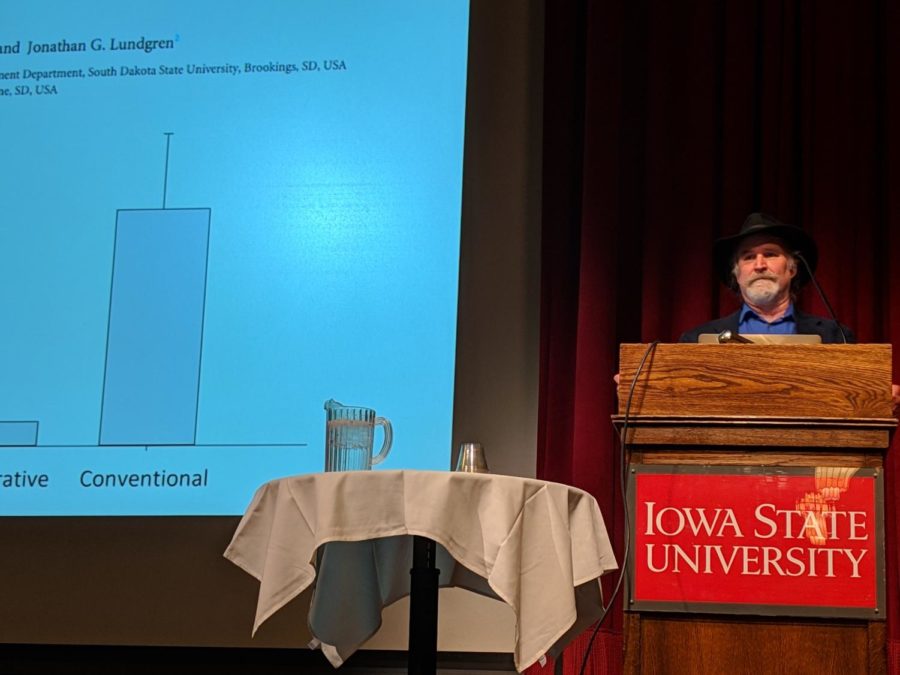Professor gives lecture on the future of soil and agriculture
Sebastian Krembuszewski [email protected]
University of Washington professor David R. Montgomery lectures on his most recently published book.
March 28, 2019
David R. Montgomery gave a lecture Thursday night at the memorial union to discuss his most recently published book, “Growing a Revolution: Bringing Our Soil Back to Life,” which explains the importance of agriculture and how it can play a big role as the solution to modern problems with climate change.
Montgomery is currently a professor and geologist at the University of Washington who researches the evolution of topography as well as the the influence of the geomorphological process on ecological systems and human societies.
According to the Scientific American website, David has written several books, including “The Hidden Half of Nature: The Microbial Roots of Life” and “Dirt: The Erosion of Civilizations,” both of which focus on natural geology of the earth.
With his new book, Montgomery explains his travels around the world and meets the farmers that are at the frontlines of a movement to help restore soil health everywhere from the large midwest of the United States to the small country of Ghana.
Montgomery said that one of the biggest influences of the degradation of soil around the world was largely due to the invention of the plow.
“The plow allowed soil to erode faster than it formed and it also helped dismay the organic matter in the soil,” Montgomery said.
Montgomery went on to mention how the average amount of soil that erodes every year across the world is about a millimeter in a half, and it only takes 20 years to lose an inch of soil, but the average that nature produces soil is about 2% of a millimeter a year, which means it takes about a thousand years to produce an inch of of topsoil.
“You can start thinking of soil the way we think of our own bank accounts, and if you have expenses, and you have income, and we have all demonstrated that if you spend money faster than you make money, you run out of money,” Montgomery said. “That is the same theme that soil has followed all throughout history”
Montgomery then talked about how the benefits of healthy soil are increased profits for farmers, comparable yields, increased soil carbon and water retention with less off-site pollution and less fertilizer.
“What turned me into an optimist on this is that the economics seems like its actually starting to pencil out, so that it makes sense for farmers to take care of reinvesting in their soil because thery’re able to spend less, then make more,” Montgomery said.
















